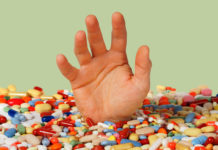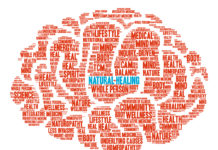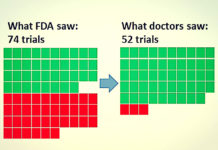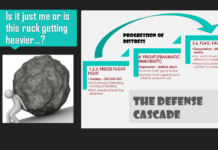The Review on Antidepressant Withdrawal That Cochrane Won’t Publish
Peter Gøtzsche and Anders Sørensen on trying to get a review of methods for safe antidepressant withdrawal published in Cochrane: "They sent us on a mission that was impossible to accomplish" to "protect the psychiatric guild."
A Kirist Response to Psychiatry
Eric Maisel offers a new philosophy of life called kirism, answering questions about purpose, meaning, and how to live.
NY Times to Bonnie Burstow: May You Not Rest in Peace
In its obituary of Bonnie Burstow, the New York Times published a comment from historian Edward Shorter that was both vile and slanderous. Burstow, if she had been alive, could easily have set the record straight.
Psychiatry, Capitalism, and the Recuperation of Psychedelics
For a psychiatrist trained to conceptualize within the medical model, psychedelics will at worst be a novel pharmacotherapy altering broken neural pathways, and at best remain an intervention targeting a multidimensional “mental illness” rather than a communion with the magical yet essential dimension of the human experience.
Big Pharma Meets Big Diagnosis, Big Courts, and Big Psychiatric Hospitals
Gottstein’s book is The Pentagon Papers of the traditional mental health system, because he exposes a mind-blowing number and variety of cold-blooded, calculating actions on the part of Eli Lilly in trying to hide what it knew to be the devastating effects of its hugely profitable Zyprexa.
Reimagining Healthcare
The conventional Western classification systems of health conditions are based on flawed science shaped by reductionist, hierarchical, and profit-driven ideologies. THEN wants to create a new paradigm built upon principles drawn from systems science, the life course perspective, developmental neurobiology, and other evidence-informed studies.
Where Are the Results of These Five Clinical Trials of Antidepressant Drugs?
The results of five large-scale clinical trials of antidepressants have never been made accessible to the public, a data set compiled by an international team of researchers shows. Their discovery highlights the incompleteness of available data on the safety and efficacy of antidepressant drugs.
Ready, Fire, Aim: Mainstream Psychiatry Reacts to the UN Special Rapporteur
In a commissioned commentary, two psychiatrists assailed the Special Rapporteur’s "anti-psychiatry bias." Their commentary reads as a crude ad hominem attack on the Rapporteur himself in order to divert attention from his well-founded conclusions about mainstream psychiatry.
How President Trump and Dr. Drew Got It Wrong on Deinstitutionalization
Compounding the lack of participation of former and current patients, a major theme of the summit was that Americans diagnosed with “serious mental illness” should not be able to make their own treatment decisions.
MIACE 2020: New Approaches to Working With People Who Are Suicidal
In March, MIA Continuing Education is launching an 11-seminar course that will provide new insights into understanding the factors driving the increase in suicide, and tell of “therapeutic” approaches that “demedicalize” suicide and offer new ways to help people in crisis.
Stalked by Stress, Abandoned to Predation: The Appeal of Suicide in a Modern World
It's not just weapons and fangs that kill me. Being stalked by industry, bureaucracy and social sentiment is deadly too. Mammalian bodies are not wired to endure chronic, pervasive threat and vulnerability. Yet this stuff is ubiquitous and embedded into mainstream culture.
Making Peer Counseling Radically Accessible
I imagined a world in which anyone can hit a button on their phone and be connected with a compassionate and empathetic listener, 24/7. So in 2019, I founded Peer Collective. Today, there are 30 peer counselors on the platform offering 30-minute counseling sessions for just $14.
The Day I Became Schizophrenic
Schizophrenia, to me, is nothing more than a word. All it really means is that you experience psychosis on a regular enough basis that it’s a factor in your life. And that you actually do, as the word “schizophrenia” indicates, have a mind that you share with some sort of outside presence.
Power Means Never Having to Say You’re Sorry
I wonder how this system would be changed if, tomorrow, every provider (past and present) woke up and made it their mission to find someone who’s been through their services in one way or another, and told them they were genuinely sorry for something specific that had happened during that time.
The Real Myth of the Schizophrenogenic Mother
Acknowledging the role of trauma inflicted by a given individual’s mother is not the same as laying all blame for “mental illness” at the feet of motherhood. Meanwhile, a mountain of evidence has accumulated linking schizophrenia to sexual, physical, and emotional abuse and many other categories of adverse childhood experiences.
Remembering Bonnie Burstow
Dr. Bonnie Burstow was a legend in her own time. She died too young, at 74, surrounded by close friends and loving students, after a short stay in the palliative care unit of Toronto General Hospital. The world has lost a truly great woman: a phenomenal antipsychiatry/anti-electroshock warrior, and a tireless fighter for human rights. And I have lost a beloved sister.
No, Dr. Friedman: The Solution to Teen Suicide is Not So Simple
In the largest newspaper in the world this week, one of the largest problems in the world was proposed as having a very simple solution. No, the answer to our suicide crisis among youth is not to encourage more teens to embrace more treatment. It’s to pursue multifaceted answers to a complex, multifaceted problem.
Surviving Psychiatry: A Typical Case of Serious Psychiatric Drug Harms
I reproduce here a patient's journey as she presented it to me, shared at her request. She was seriously harmed by psychiatric drugs; her life became endangered; and she suffered an excruciating withdrawal phase because she did not receive the necessary guidance. But she is doing well today.
Real Doctors Are Peddling Fake Diseases: Here’s How to Spot Them
We’re bombarded with ads for newly discovered diseases. Are they all legitimate, or are some sham illnesses that were created to sell more drugs? Here are four ways to logically test whether or not something really is a classic (physically-based, symptom-causing) disease.
Overcoming the Madness in Us All
I believe that the greatest challenge or threat to our identities and mental soundness comes from the fear of being unworthy of love. We cannot ameliorate this dread wholly on our own but must instead rely in part on resources outside ourselves who invite, encourage, exemplify or draw out our own capacity to feel and to give love.
The Invisibles: Children in Foster Care
Millions of current and former foster children experience multiple kinds of trauma, as documented in a six-part investigative series published in the Kansas City Star this month. Too often invisible, these young people deserve our attention and our care.
Zel Dolinsky: I Have a Right to “Death With Dignity”
Researcher Zel Dolinsky once taught at medical school and worked as a medical writer in the pharmaceutical industry. In his last emails, he told of how the adverse effects of psychiatric drugs led him to choose to end his life.
Merry, Beautiful, Unique: YOU
You and me, we are different. We live in the world of magic, where angels appear, where voices scare but also reveal, where visions show us the other, real, parallel world. God blesses only very few of us with such an ability. And that’s why you have to fight for this right.
Anatomy of a Suicide: Stress and the Human Condition
The Defense Cascade is a survival framework that evolutionary researchers are exploring as an explanation for extreme states that many people experience. It can help explain why chronic stress can make us feel like ending our life is the only reasonable way out.
Medical Ghostwriting: When an “Author” Is Not Necessarily an “Author”
Ghostwriting, which is prominent in the psychiatry literature, is a scam in which pharmaceutical companies use an academic sleight of hand to stump the naïve reader. It is time for editors of the major medical journals to use the same standards of authorship found in the humanities and social sciences.

































